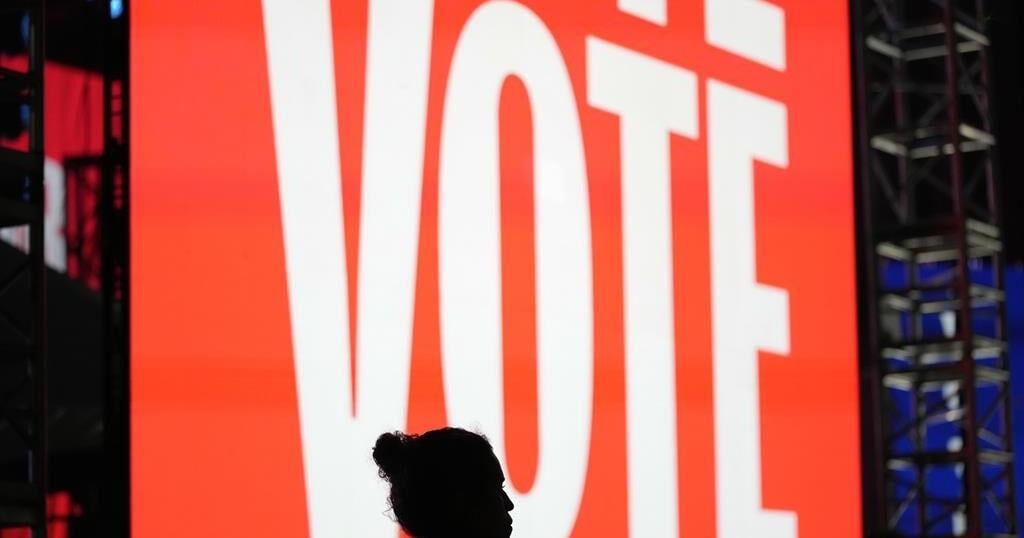Here is a roundup of stories from The Canadian Press designed to bring you up to speed…
Canadians watch as Americans head to the polls
Millions of Americans are heading to the polls Tuesday as a chaotic presidential campaign reaches its peak in a deeply divided United States, where voters in only a handful of battleground states will choose the country’s path forward.
Vice-President Kamala Harris and former president Donald Trump have presented starkly different visions for America’s future, but polling shows the two remain in a dead heat.
Canada’s ambassador to the United States Kirsten Hillman has been travelling across America meeting with key members of the Republican and Democratic teams to prepare for any outcome. On election night, after her embassy duties are finished, she’ll be watching the results with her husband and friends,
A shared history and 8,891-kilometre border will not shield Canada from the election’s outcome. Both candidates have proposed protectionist policies, but experts warn if the Republican leader prevails the relationship between the neighbours could be much more difficult.
A cause for concern in Canada and around the world is Trump’s proposed 10 per cent across-the-board tariff. A Canadian Chamber of Commerce report suggests those tariffs would shrink the Canadian economy, resulting in around $30 billion per year in economic costs.
Here’s what else we’re watching…
5 things for Canadians to watch in U.S. election
Americans are facing a decision about the future of their country and no matter which president they choose, Canada cannot escape the pull of political polarization from its closest neighbour.
Vice-President Kamala Harris and former president Donald Trump present starkly different paths forward for the United States and the race for the White House appears to be extremely close.
The U.S. is Canada’s largest trading partner and its next president will be in charge during the review of the Canada-U.S.-Mexico agreement in 2026.
Harris has campaigned on the fact that she voted against the trilateral agreement, saying it didn’t do enough to protect American workers or the environment. The vice-president is largely expected to maintain President Joe Biden’s Buy American procurement rules.
The centrepiece of Trump’s agenda is a proposed 10 per cent across-the-board tariff.
B.C. ports shuttered as lockout takes hold
One of Canada’s most vital trade arteries is cut off as employers at most of British Columbia’s ports lock out their workers in a dispute involving about 700 unionized foremen.
The BC Maritime Employers Association says it defensively locked out members of the International Longshore and Warehouse Union Local 514 after the union began strike activity yesterday.
However, union president Frank Morena says the employers grossly overreacted to the union’s original plan for an overtime ban, adding that its negotiators are ready to re-engage in talks at any time.
Canadian political and business leaders have expressed concern with another work stoppage at the ports, after job action from the big railways earlier this year and a 13-day strike in a separate labour dispute last year.
The Greater Vancouver Board of Trade says it is relaunching its Port Shutdown Calculator, a tool to illustrate the economic damage caused by the labour dispute and introduced during the job action last year.
UN refugee chief: cutback wise amid housing crisis
The head of the United Nations refugee agency says it is wise of Canada to scale back the number of new refugees it plans to resettle if that helps stabilize the housing market and prevents backlash against newcomers.
Filippo Grandi, the UN High Commissioner for Refugees, met with the prime minister in Ottawa on Monday.
His visit comes a little more than a week after the federal government announced plans to cut overall immigration levels by 20 per cent for 2025 — a cut that includes refugees and protected persons.
The move has drawn condemnation from migrant groups, including the Canadian Council for Refugees, who called the new plan dangerous and a betrayal.
Grandi says Canada remains a global leader in resettlement, but says that pro-refugee sentiment is fragile in an economic or housing crisis and it would be “really negative” to see it destroyed.
N.S. memorial honours service of eight brothers
A new memorial recently dedicated in a small Nova Scotia community honours eight brothers whose story of service in the Second World War had been all but lost to local memory.
The Harvie brothers from Gormanville, N.S., all served in Europe — six returned home, while two died and are buried overseas.
A black granite monument is now inscribed with the names and photos of Avard, Burrell, Edmund, Ernest, Ervin, Garnet, Marven and Victor Harvie. It stands in a small memorial park just up the road from their hometown, beside the Royal Canadian Legion branch in Noel, N.S.
The number eight is inscribed prominently in the middle of the memorial.
The monument in the town about 70 kilometres north of Halifax is the brainchild of legion president Jeff Thurber, who only became aware of the Harvie brothers’ remarkable story around the time of his branch’s Remembrance Day service last year. That was when he happened to see them mentioned in a memorial book kept by the legion.
This report by The Canadian Press was first published Nov. 5, 2024.
